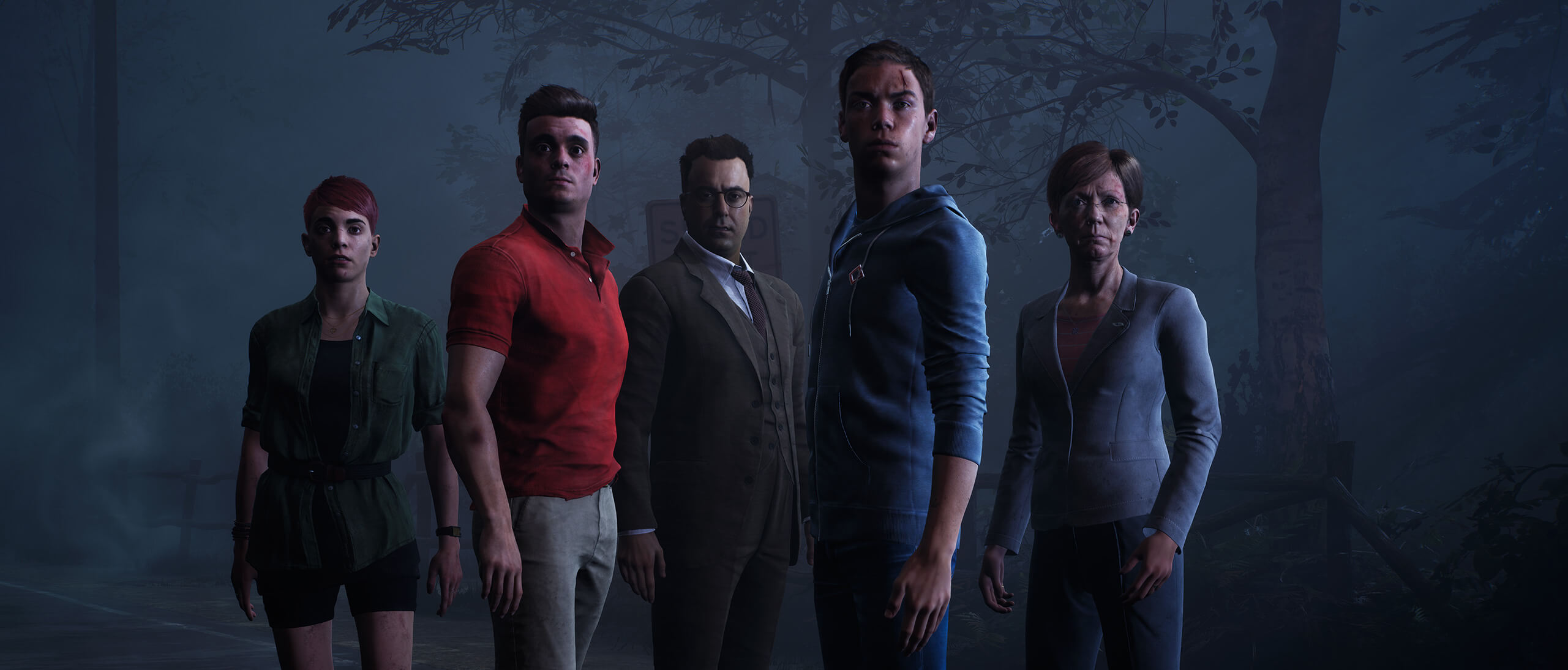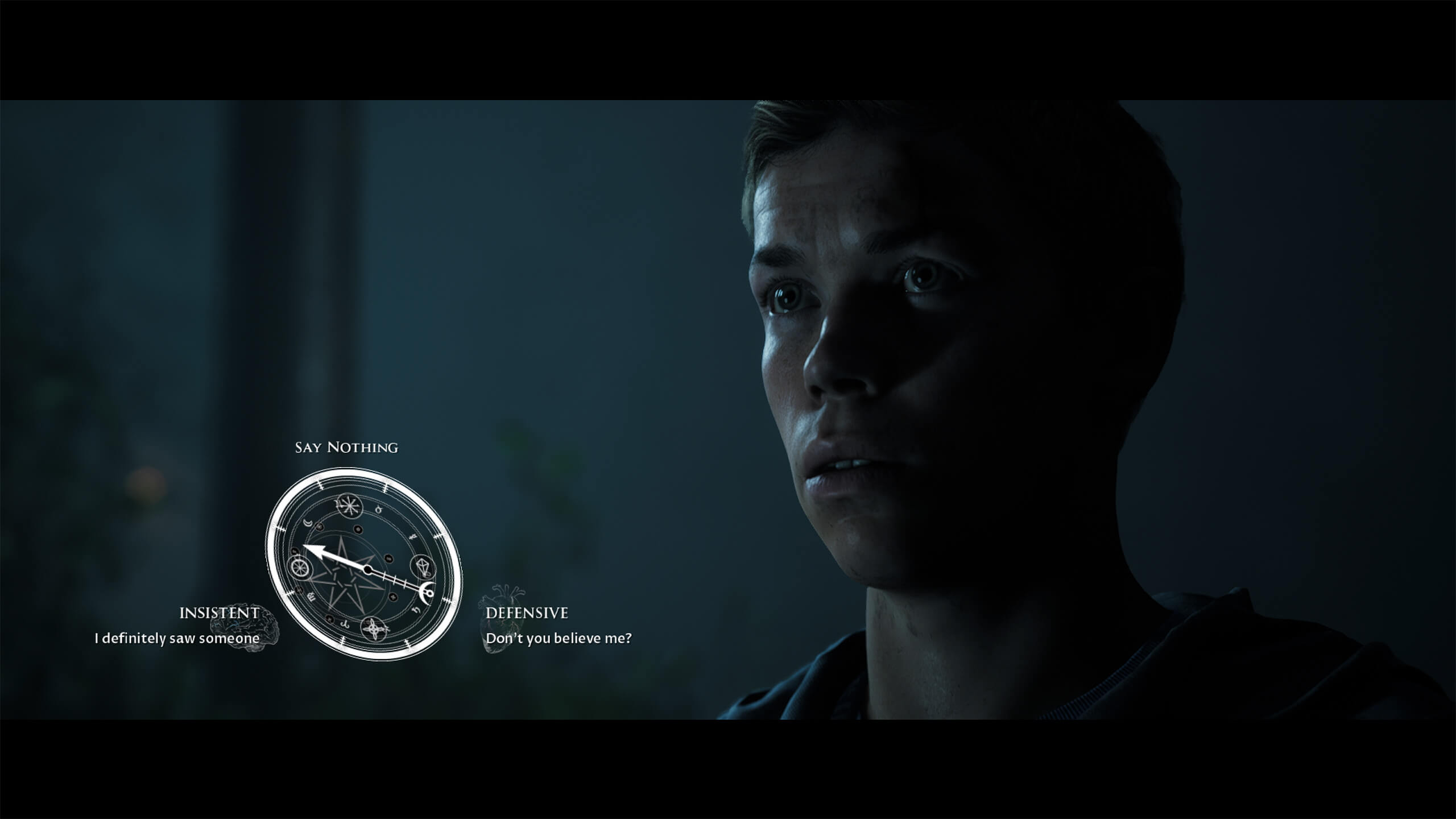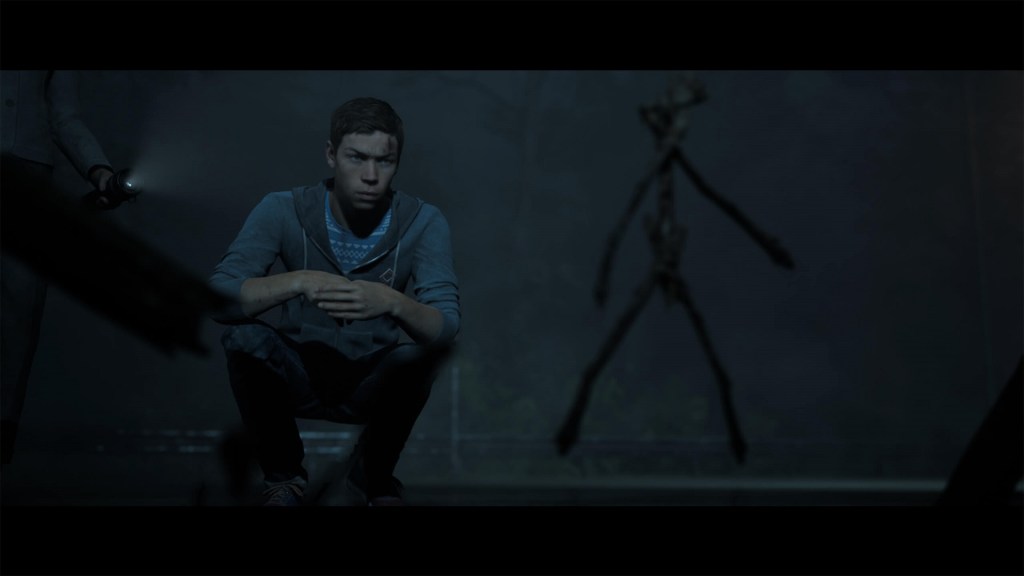After a brief foray into the world of VR, Supermassive Games returned to the horror genre last year with The Dark Pictures Anthology, a series of horror titles exploring different themes. They initially aimed to release two games per year. Thanks to Covid-19 they haven’t been able to keep up with that schedule. The second of those titles, Little Hope, missed its planned summer window. I think we’d all agree, though, that Halloween is a more appropriate release.
The story premise is not new by any means. Due to a road accident, a bus is diverted through the nearby ghost town of Little Hope. After swerving to avoid a girl in the middle of the road, the bus also crashes. A group of four college students and their professor climb out of the wreckage. There’s no sign of the bus driver. A strange fog surrounding the site prevents them from heading back the way they came, and the nearby town becomes their only chance of help. That’s as long as they can survive the night.
The Dark Pictures Anthology: Little Hope Review – What’s the Fog Hiding?
Little Hope doesn’t just take place in the current time period. The story takes its characters through centuries of history in regular flashbacks. For these, the team drew inspiration from a play called The Crucible, a drama about Salem witch trials that took place towards the end of the 17th century. There’s a fairly obvious Silent Hill influence too. Over the course of 5-6 hours, players get to connect the dots between the different eras, and find out why the quintet find themselves fatefully drawn to Little Hope. Despite the presence of similarly named towns throughout America, the town is completely fictional.
If the town is the background for the story, the likeable characters are what drives it forward. Despite clashing personalities and arguments, you care about their fates. College professor John instantly assumes the leader role, irritable to anyone who questions his decisions. Taylor is a headstrong and confident young lady, even if she’s prone to tantrums more befitting a young teenager. Her maybe-boyfriend Daniel is your typical jock, cocky but with a caring side underneath. Andrew is quieter and inexperienced; he also has amnesia, although he seems to get over that a mere five seconds later. Completing the bunch is mature student Angela, abrasive in manner and eager to get on with things.

All characters are fully voiced and motion captured by a cast of actors. Some are instantly recognizable, like Andrew, who is voiced by Will Poulter of The Mazerunner fame. Others, like Anne (voiced by Ellen David), bear little resemblance to their actors. Despite this, the character animations never feel clunky, and the voice acting is very believable. There were very few issues with lip syncing with the exception of the introduction that marked the return of The Curator, once again voiced by Pip Torrens. Here the animation lagged for around half a second before continuing, the sound carrying on regardless. This led to strange mismatch between the two, although this was quickly rectified with the next loading screen and never happened again.
Anyone familiar with Man of Medan and/or Until Dawn will know what to expect in terms of gameplay. A lot of time is spent walking around a fairly linear town looking for secrets. While not necessary, secrets like paintings and books give a fuller picture of what’s going on in Little Hope. There are also postcards to find that unlock premonitions of events that may happen in the future. All are worth finding.
The Dark Pictures Anthology: Little Hope Review – Finding Those Secrets
The good news is characters walk faster than in Man of Medan, and the tank controls that plagued players have been completely removed. There’s also a floating camera that theoretically makes exploration easier, although its habit of spinning around the characters can cause issues. At one point the camera spun around so that Andrew was walking towards the camera. In doing so, it hid the fact he was supposed to turn around and walk in the other direction, leading to confusion over where he was heading next.
Decisions made during conversations and prominent events are the most important part of the game. They can change relationships between the five characters and even some NPCs, as well as affecting events in the future. They may even stop the premonitions from happening. Each decision matters; just a single, seemingly minor decision can change the fate of a character, as I found out the hard way. There are multiple endings and branching storylines to find for those interested in playing the game through more than once.

Atmosphere is more important than jump scares in this game. The jump scares that do exist follow a predictable pattern, especially later in the story. They are the best way to introduce the demons that haunt the town, though. Each demon has a unique design based around how they initially died and they’re genuinely intimidating. These undead creatures are the biggest threat to the characters, and their encounters are handled using QTEs.
There are several types of QTE. There’s the basic pressing of a button before time runs out, or mashing said button. There are also sequences where the characters are trying to control their breathing. Here, buttons have to be pressed in time to a heartbeat trace. Finally, there are crosshair targets that need to be lined up before pulling the trigger. The latter are still the most frustrating, but Supermassive has now included prompts that give an idea where on the screen the crosshair will sit.
The Dark Pictures Anthology: Little Hope Review – Better QTEs
QTEs are mixed freely during encounters. Their difficulty has been lowered from Man of Medan as there’s now more time for players to react. A new icon also shows the action the character will perform if the QTE is successful, and these do give some precursor to what type of QTE follows. Despite this, there’s still a high chance you’ll end up unfairly failing some just because you didn’t realize what type of QTE it was until too late.
As well as the solo mode, there’s the chance to play the game with friends, meaning you can blame each other for dud decisions. Shared Story allows two players to play together online. If you prefer a local experience, Movie Night lets up to five players select a character, each taking the controller when that character takes the lead.

However you choose to experience the game, Little Hope restores players’ faith in Supermassive Games to continue making decent narrative horror titles. The story ties together well regardless of player decisions, and there’s a great mix of character personalities. Friendlier QTEs and better character movement make the title an improvement over Man of Medan, and there are barely any technical issues. The Dark Pictures Anthology has a bright future ahead.
The Dark Pictures Anthology: Little Hope review code provided by publisher. Reviewed on PS4. For more information, please read our Review Policy.
-
Decisions truly make an impact
-
A great mix of likeable characters
-
Easier and more accessible QTEs
-
Story is a bit familiar
-
Mixing QTEs can still lead to unfair failures








